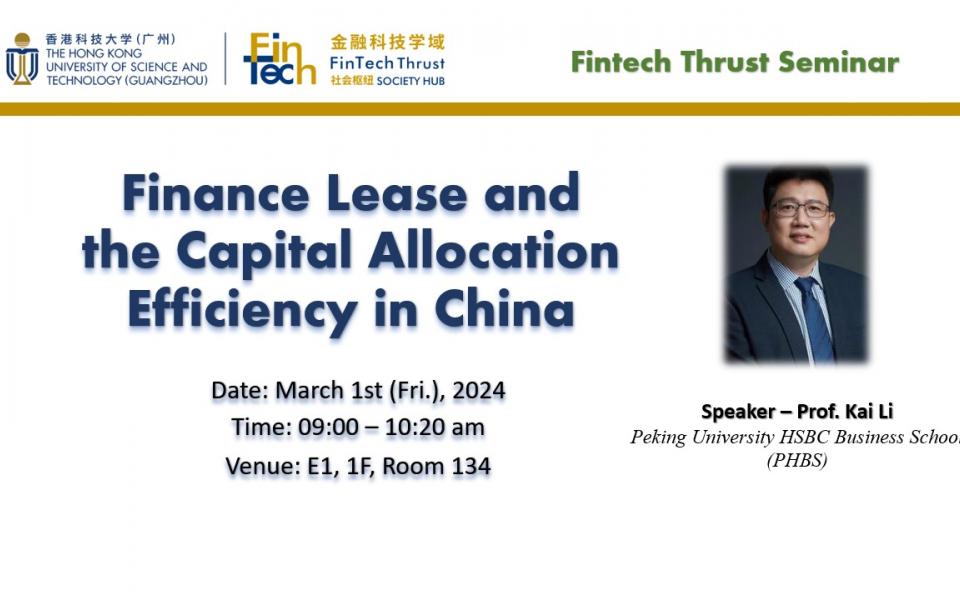FINTECH THRUST SEMINAR | Finance Lease and the Capital Allocation Efficiency in China
Supporting the below United Nations Sustainable Development Goals:支持以下聯合國可持續發展目標:支持以下联合国可持续发展目标:
Finance Lease and the Capital Allocation Efficiency in China
Abstract:
Finance lease is often considered equivalent to secured lending in mainstream finance literature but receives little attention in academic research. In this paper, we argue that the finance lease plays a special role in improving capital allocation efficiency in China, particularly in the context of limited access to bank loans for small and medium-sized enterprises. Using a two-sector general equilibrium model with heterogeneous firms, information asymmetry, and financial frictions, we demonstrate that the presence of a finance lease market increases aggregate total factor productivity by enabling low-productivity state-owned enterprise (SOE) firms to lend effectively to high-productivity privately owned enterprise (POE) firms. We also find that finance lease has become the dominant representation of shadow banking in China. Furthermore, due to its repossession advantage, finance lease is a ``good" form of shadow banking as it poses lower systemic risk to the financial system compared to other forms of shadow banking. Our findings have significant policy implications for China's shadow banking regulations.
Professor Kai Li is currently a tenured associate professor of finance at the Peking University HSBC Business School (PHBS). He earned his PhD in economics from Duke University in 2013. Before joining PHBS, he was an assistant professor of finance at the Hong Kong University of Science and Technology. His primary research fields include asset pricing, macro finance, financial economics, and China's financial market. His research agenda focuses on developing, testing, and applying the asset pricing theory based on financing constraints. His papers have been published in leading academic journals such as the Journal of Finance, Review of Financial Studies, Journal of Financial Economics, Journal of Monetary Economics, and Review of Finance. He currently serves as the Associate Editor of China Economic Quarterly, recognized as one of China's premier economics journals.
